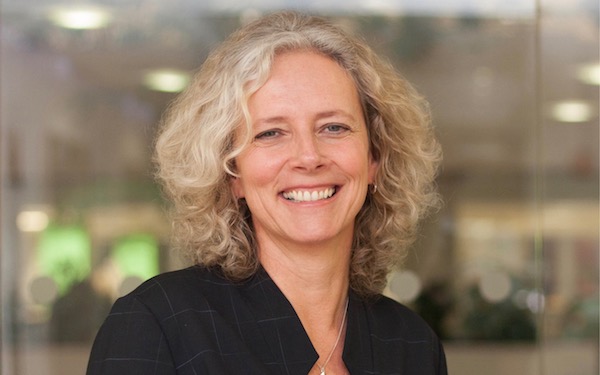
Chief social worker for children and families Isabelle Trowler has written to Social Work England’s chief executive urging him to address “serious concerns” from students over a lack of focus on anti-discriminatory practice.
In a series of tweets this week, Trowler said she had written to Colum Conway seeking assurances that the regulator ensures that anti-discriminatory practice was integral to the content of social work qualifying programmes.
She said this was in response to “serious concerns” raised recently with her by social work students who felt that their courses were not sufficiently covering this area of practice.
In response serious concerns recently raised by SW students who feel that their qualification programme is not sufficiently addressing anti-discriminatory practice, do refer to @SocialWorkEng where you feel the matter is not successfully resolved with your provider. 1/2
— Isabelle Trowler (@IsabelleTrowler) July 9, 2020
I have written to @SocialWorkEng Chief Executive seeking assurance that the regulator ensures anti-discriminatory practice is integral to the evidenced learning outcomes achieved, through SW qualifying programmes. 2/2
— Isabelle Trowler (@IsabelleTrowler) July 9, 2020
It is not clear what specific concerns have been raised with Trowler, but her comments come in the wake of the significant questions raised about UK social work’s record on race, in the wake of George Floyd’s killing and the Black Lives Matter protests that have followed.
This has included critical feedback from participants about the Frontline programme, including about the level of priority given to a lack of focus on anti-racism within the fast-track provider’s curriculum, something it has vowed to address as part of a wider action plan.
In addition, a care experienced social work student has written an open letter to Trowler, published last week by Community Care, saying she did not feel comfortable as a gay trainee on her course and criticising the lack of training on working with LGBTQ+ people.
Current Social Work England standards
Social Work England currently assesses and approves qualifying courses against its 2019 education standards. These state that courses must have, monitor and implement equality and diversity policies in relation to admissions and in relation to the leadership and management of courses.
The standards do not reference equality, diversity, anti-discriminatory practice or anti-oppressive practice in relation to course design, practice-based learning or the assessment of students. Each of these do say that the outcomes of the learning or assessment should be that the student meets Social Work England’s professional standards, which include the following:
- Recognising differences across diverse communities and challenging the impact of disadvantage and discrimination on people and their families and communities.
- Promoting social justice, helping to confront and resolve issues of inequality and inclusion.
- Recognising and use responsibly, the power and authority practitioners have when working with people,
- Not abusing, neglecting, discriminating, exploiting or harming anyone, or condoing this by others.
- Reporting allegations of harm and challenge and report exploitation and any dangerous, abusive or discriminatory behaviour or practice.
In a statement responding to Trowler’s tweets, Conway said: “We are committed to ensuring that Social Work England, as well as the social work profession, are actively anti-racist and anti-discriminatory in all aspects of our work.
“Our education and training standards include several key equality and diversity elements, which are required to be evidenced and are interrogated as part of our education quality assurance processes.
“We have also established an education and training advisory forum, made up of representatives including providers and students, to consider our approach. The Black Lives Matter movement, as well as principles of equality, diversity and inclusion, has been a key part of our discussions.
“We will continue to work with the sector, and education and training providers, to ensure this remains front and centre of their development and informs future action.”


 Bournemouth, Christchurch and Poole
Bournemouth, Christchurch and Poole  Hampshire County Council
Hampshire County Council  Lincolnshire County Council
Lincolnshire County Council  Norfolk County Council
Norfolk County Council  Northamptonshire Children’s Trust
Northamptonshire Children’s Trust  South Gloucestershire Council
South Gloucestershire Council  Wiltshire Council
Wiltshire Council  Wokingham Borough Council
Wokingham Borough Council  Children and young people with SEND are ‘valued and prioritised’ in Wiltshire, find inspectors
Children and young people with SEND are ‘valued and prioritised’ in Wiltshire, find inspectors  How specialist refugee teams benefit young people and social workers
How specialist refugee teams benefit young people and social workers  Podcast: returning to social work after becoming a first-time parent
Podcast: returning to social work after becoming a first-time parent  Podcast: would you work for an inadequate-rated service?
Podcast: would you work for an inadequate-rated service?  Family help: one local authority’s experience of the model
Family help: one local authority’s experience of the model  Workforce Insights – showcasing a selection of the sector’s top recruiters
Workforce Insights – showcasing a selection of the sector’s top recruiters 

 Facebook
Facebook X
X LinkedIn
LinkedIn Instagram
Instagram
Start by having some black staff in social work England
How can We be confident that Black people going through fitness to practice can be given a fair chance.